Consumers love luxury bags
Recent polling data from a YouGov survey conducted across 18 international markets sheds light on global consumers’ interest in purchasing luxury goods. Surprisingly, a significant portion of respondents, constituting 40%, express no interest in acquiring any luxury products. However, among those inclined towards luxury purchases, the survey highlights that luxury clothes or shoes (31%) and premium food items such as meat, fruit, or vegetables (30%) rank as the most sought-after categories. Notably, luxury jewellery and bags, wallets, or cases both garner interest from 14% of consumers, while luxury watches capture the attention of 12% of respondents. Interestingly, luxury cars rank the lowest in terms of consumer interest, with only 11% expressing a desire to make such purchases.
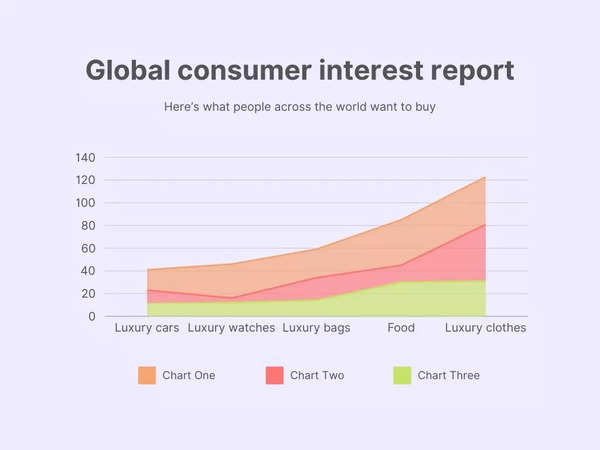
Delving deeper into consumer preferences for luxury bags, wallets, or cases across various countries reveals intriguing patterns. The data suggests a notable disparity in interest levels across different regions, with Asia and the Middle East exhibiting higher levels of enthusiasm compared to Europe and North America. In India, for instance, a substantial 36% of consumers express intentions to invest in luxury bags, marking it as the country with the highest interest in this category. Following closely behind is the UAE, with nearly a third (29%) of consumers indicating their intent to purchase luxury items. Moreover, consumers in other Asian countries, including Indonesia (28%), Hong Kong (24%), China (18%), and Singapore (16%), demonstrate a greater propensity for acquiring luxury bags or wallets compared to their counterparts in western markets.
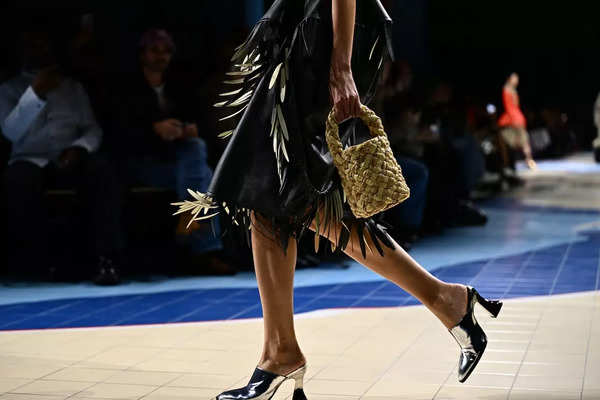
Interestingly, urban Mexicans stand out with a higher proportion (16%) of consumers planning to buy luxury bags, surpassing the global average. However, this heightened interest is not mirrored in neighboring countries, as evidenced by fewer than one in ten Canadians (8%) and Americans (7%) expressing similar intentions. In Europe, where several renowned luxury brands originate, the enthusiasm for luxury bags appears comparatively subdued. Italy, known for its luxury fashion heritage, registers only 11% of consumers planning to purchase luxury bags or wallets. This trend continues across other European markets, with Denmark and Germany both recording 7% interest, while Britons display the least inclination, with a mere 6% expressing intent to buy luxury bags.
Watch: Janhvi Kapoor hosts an extravagant ‘Princess Diaries’ themed bridal shower for Radhika Merchant
Top 10 most expensive bags in the world
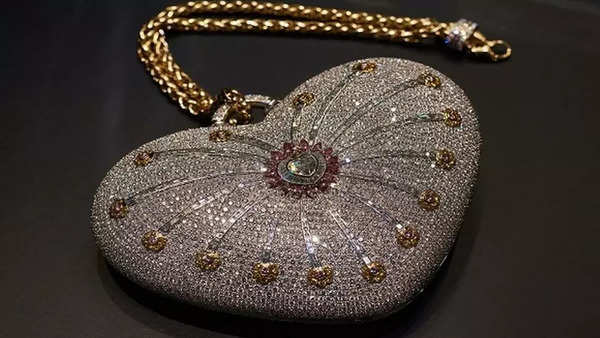
The Mouawad 1001 Nights Diamond Purse reigns supreme as the world’s most expensive handbag, commanding a staggering $3.8 million. This iconic masterpiece is crafted from 18-karat gold and bedecked with an astonishing 4,517 diamonds, including rare yellow and pink diamonds, exuding unparalleled luxury and opulence. In the Indian market, this exquisite purse would translate to approximately ₹28.9 crore.
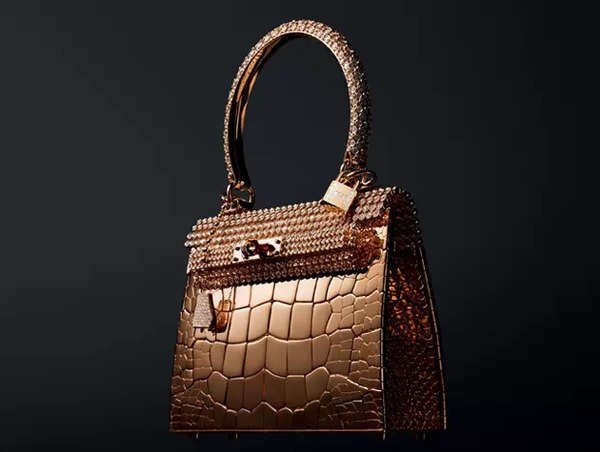
Following closely behind is the Hermes Kelly Rose Gold handbag, a marvel of design and craftsmanship, priced at $2 million. Crafted from solid rose gold and adorned with 1,160 diamonds, this stunning creation blurs the line between accessory and objet d’art, symbolizing luxury and sophistication. In India, this opulent handbag would fetch around ₹15.2 crore.
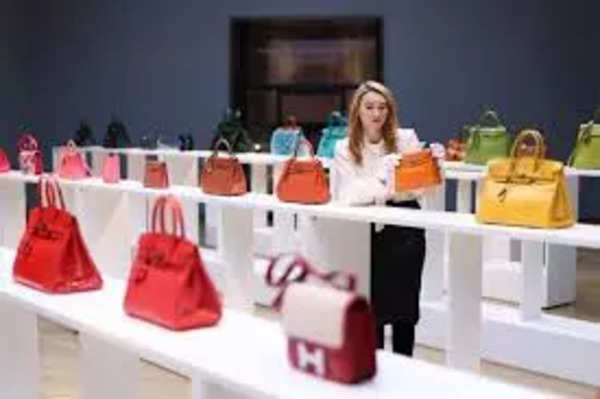
The Hermes Birkin Bag by Ginza Tanaka, priced at $1.4 million, showcases ingenuity and extravagance in its design. Crafted from platinum and embellished with 2,000 diamonds, including a dazzling pear-shaped centerpiece, this masterpiece is a true statement of luxury and elegance. In the Indian market, this extraordinary Birkin bag would cost approximately ₹10.7 crore.
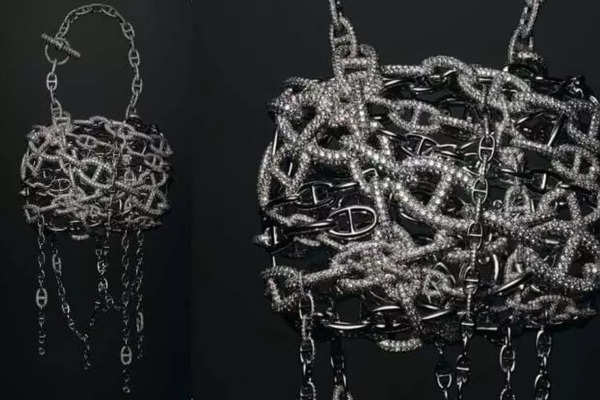
Next on the list is the Hermes Chaine’d Ancre Bag, also priced at $1.4 million, exemplifying luxury and style. Adorned with 1,160 diamonds set in intricate anchor-shaped chain links, this rare creation is destined to be cherished for generations. In India, this exquisite handbag would be valued at around ₹10.7 crore.
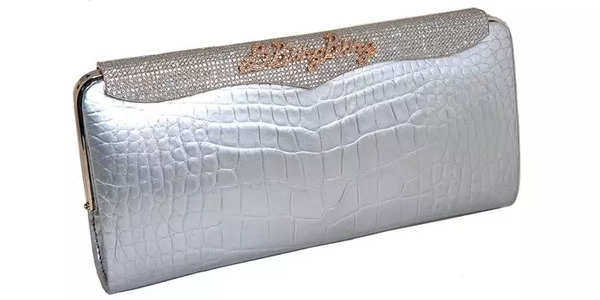
Moving on to the Lana Marks Cleopatra Clutch, priced at $400,000, this symbol of elegance and refinement is crafted from American alligator leather and adorned with 1,600 white diamonds. In India, this luxurious clutch would be priced at approximately ₹3.1 crore.
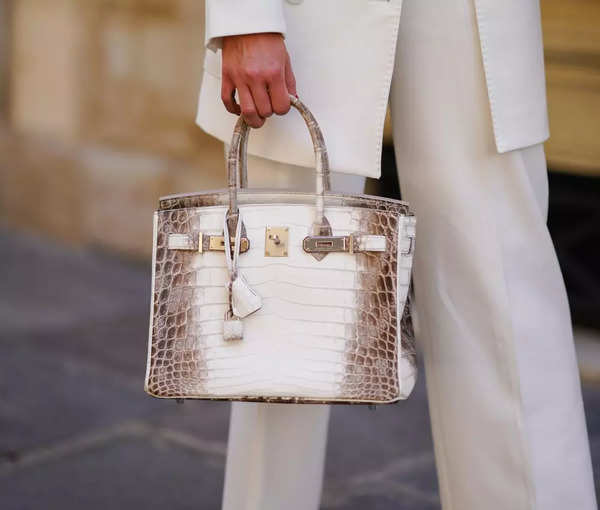
The Niloticus Crocodile Himalaya Birkin, priced at $379,000, is a rare and coveted masterpiece adorned with over 240 diamonds. Inspired by the majestic Himalayan mountains, this handbag is a true symbol of luxury and elegance. In the Indian market, this exquisite Birkin would cost around ₹2.9 crore.
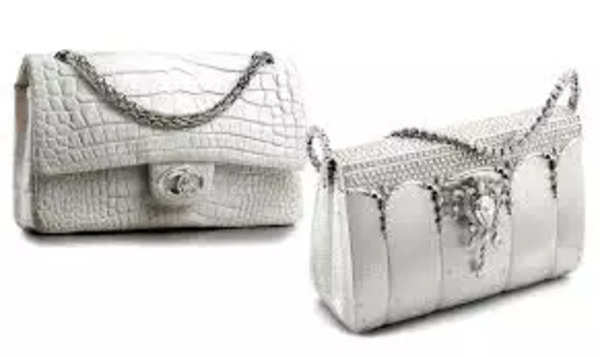
The Chanel “Diamond Forever” Handbag, priced at $261,000, is a timeless classic adorned with 334 diamonds set in white gold. With only 13 ever created, it is a rare and coveted treasure for collectors. In India, this exquisite handbag would be valued at approximately ₹2 crore.
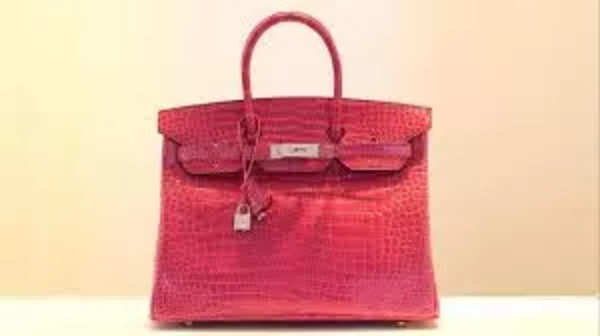
The Fuchsia Diamond-Studded Hermes Birkin, priced at $222,000, is a dazzling display of luxury and extravagance, adorned with 18-carat white gold and diamonds. In the Indian market, this statement piece would be priced at around ₹1.7 crore.
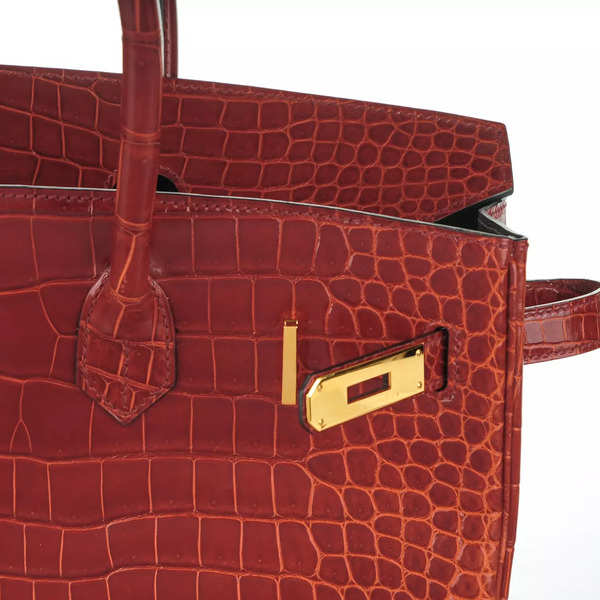
The Hermes Exceptional Collection Shiny Rouge H Porosus Crocodile 30 cm Birkin Bag, priced at $203,150, is crafted from rare crocodile leather and adorned with 18K white gold and diamond hardware, symbolizing opulence and style. In India, this luxurious handbag would cost approximately ₹1.5 crore.
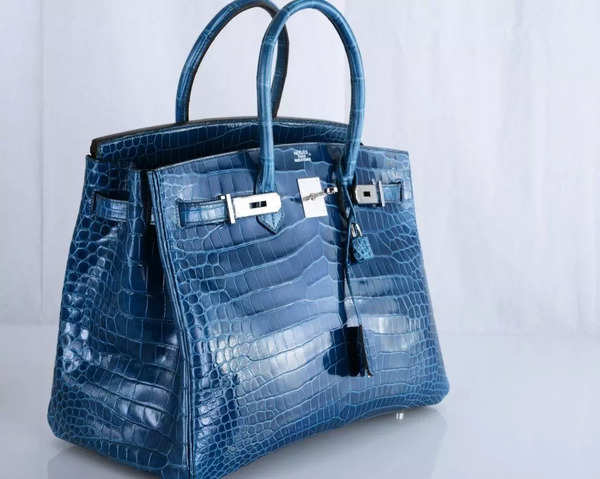
Finally, the Blue Crocodile Hermes Birkin Handbag, priced at $150,000, exudes elegance and sophistication with its luxurious crocodile leather and diamond embellishments. In the Indian market, this timeless classic would be priced at around ₹1.1 crore.
Why are luxury bags so expensive?
Luxury bags command exorbitant prices due to a combination of factors that contribute to their exclusivity, craftsmanship, materials, and brand prestige. Firstly, the craftsmanship involved in creating luxury bags is unparalleled, with skilled artisans meticulously handcrafting each piece to perfection. These artisans undergo rigorous training and possess specialized skills honed over years of experience, ensuring that every stitch and detail is executed flawlessly. The intricate craftsmanship not only enhances the aesthetic appeal of the bag but also ensures its durability and longevity, making it a timeless investment piece.
Moreover, luxury bags are crafted from the finest and most exquisite materials available, sourced from around the world. From supple leathers and exotic skins to rare textiles and precious metals, the materials used in luxury bags are of the highest quality, meticulously selected to meet the brand’s standards of excellence. These premium materials not only enhance the visual appeal of the bag but also contribute to its superior quality and tactile experience, ensuring that it stands the test of time.
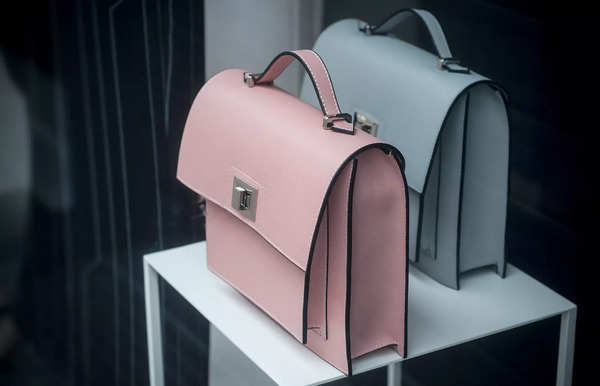
Additionally, the branding and heritage associated with luxury fashion houses play a significant role in driving up the prices of their bags. Established luxury brands have built a reputation for excellence and exclusivity over decades, often tracing their origins back to illustrious couturiers and designers. This rich heritage and legacy imbue their bags with a sense of prestige and allure, elevating them beyond mere accessories to coveted symbols of status and style.
Dubai: Luxury malls flooded, water enters Chanel, Fendi; airports, roads all drowned
Furthermore, the limited availability and exclusivity of luxury bags contribute to their high price tags. Many luxury brands produce their bags in limited quantities, often employing intricate production processes and techniques that require considerable time and resources. This limited production ensures that each bag remains rare and highly sought after, further enhancing its allure and exclusivity among discerning consumers.
Luxury bags command premium prices due to a combination of exceptional craftsmanship, finest materials, brand prestige, and exclusivity. These factors collectively contribute to the desirability and investment value of luxury bags, making them coveted symbols of luxury and status for fashion enthusiasts worldwide.
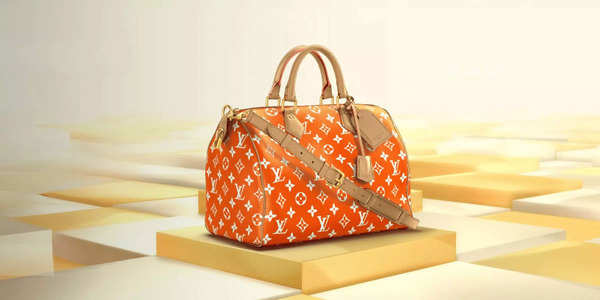
Luxury bags = Counterfeits
Luxury bags, symbols of prestige, elegance, and status, have long been coveted by fashion enthusiasts worldwide. However, with their high price tags often placing them out of reach for many, a parallel industry of counterfeit luxury bags has flourished. The proliferation of counterfeit luxury bags stems from a multitude of factors, each contributing to the allure and accessibility of these imitation products.
One of the primary reasons for the prevalence of counterfeit luxury bags is the insatiable demand for these coveted accessories. Luxury brands like Louis Vuitton, Chanel, and Gucci have established themselves as symbols of wealth and status, with their iconic designs adorning the arms of celebrities, influencers, and fashionistas alike. However, the exorbitant prices of authentic luxury bags place them beyond the reach of the average consumer, creating a lucrative market for counterfeiters to exploit.
From Indian households to Cannes red carpet: Sari goes global
10 luxury bags adored by rich women
Counterfeiters capitalize on this demand by producing imitation luxury bags that closely mimic the designs of their authentic counterparts. These counterfeit bags are often sold at a fraction of the cost of genuine luxury bags, making them an attractive alternative for budget-conscious consumers who desire the look and prestige of luxury without the hefty price tag.

Furthermore, advancements in technology have made it easier than ever for counterfeiters to replicate the intricate details and craftsmanship of authentic luxury bags. High-quality materials, sophisticated manufacturing techniques, and skilled labor enable counterfeiters to produce imitation bags that closely resemble the real thing, making it difficult for consumers to distinguish between genuine and counterfeit products.
The rise of online marketplaces and social media platforms has also facilitated the proliferation of counterfeit luxury bags. With the click of a button, consumers can browse a vast array of counterfeit products on e-commerce websites, social media platforms, and online marketplaces, making it easier than ever for counterfeiters to reach a global audience. These platforms provide counterfeiters with a cloak of anonymity, allowing them to operate with relative impunity while exploiting the popularity of luxury brands.
Moreover, the globalization of trade and the expansion of supply chains have made it increasingly challenging for authorities to combat the counterfeit luxury bag industry. Counterfeit goods are often produced in countries with lax intellectual property laws and enforcement mechanisms, making it difficult for luxury brands to take legal action against counterfeiters operating in these jurisdictions. Additionally, the proliferation of counterfeit goods through online channels further complicates enforcement efforts, as counterfeiters can quickly adapt and evade detection by operating across multiple platforms and jurisdictions.
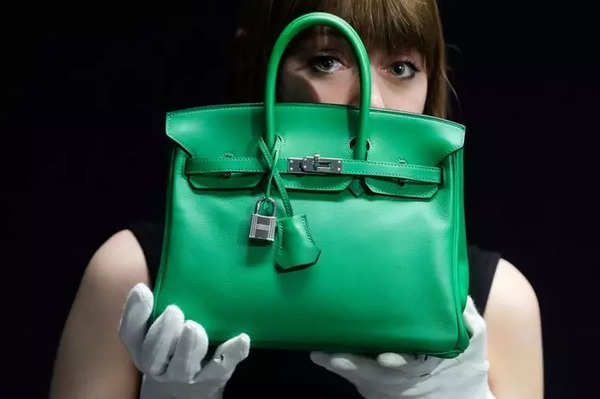
The allure of counterfeit luxury bags is not solely driven by economic factors; it is also fueled by the desire for social recognition and status. In today’s hyper-connected world, where social media influencers and celebrities flaunt their luxury lifestyles to millions of followers, owning a designer handbag has become synonymous with success and affluence. For many consumers, the prestige associated with owning a luxury bag outweighs the ethical concerns surrounding counterfeit goods, leading them to purchase imitation products in pursuit of social validation and status.
Despite the allure of counterfeit luxury bags, consumers should be aware of the ethical, legal, and social implications of supporting the counterfeit industry. Counterfeit goods not only infringe on the intellectual property rights of luxury brands but also contribute to a range of negative consequences, including lost revenue, diminished brand reputation, and exploitation of labor. By choosing to purchase authentic luxury bags, consumers can support ethical and sustainable fashion practices while enjoying the craftsmanship, quality, and prestige that luxury brands have to offer.
